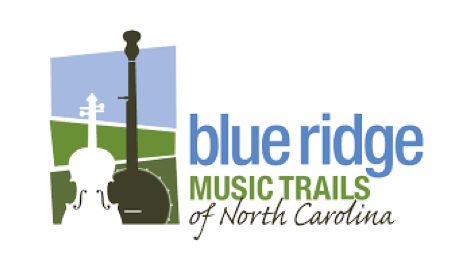Born and raised in Canton, banjoist Marc Pruett has ventured across the country and the around the world with his trusty five-string acoustic instrument. Learning his craft from some of the finest musicians in Western North Carolina and beyond, he’s considered the cream of the crop within a rich scene where giants of the genre have last names like Fleck, Brown, Vestal, Trischka, Scott-Benson, Pikelny, Munford, and so forth.
At 68, Pruett recently released a memoir. Titled Rascally Mountain Boy, the book is constructed in three parts: Pruett’s extensive musical career, a section of personal stories and tall tales, and a wide array of his own song lyrics.
Pieced together steadily over the last decade, the work showcases Pruett’s early days holding court at the legendary Bill Stanley’s Barbecue bluegrass joint in Asheville, his time performing onstage with some of the pillars of bluegrass music (Bill Monroe, Lester Flatt, Earl Scruggs, Jimmy Martin, among countless others), and his tenure with Ricky Skaggs & Kentucky Thunder, which yielded a Grammy Award in 1998 for “Best Bluegrass Album” (for Skaggs’ record “Bluegrass Rules!”).
The memoir is an ode to days long gone but not forgotten in Southern Appalachia. It’s not meant to look back with rose-colored glasses, but to perhaps pull wisdom and life lessons from for future generations.
More so, it’s about remembering great souls who once walked this earth, and never forgetting where one came from, even if the distance — whether physical or emotional — seems too wide to bridge amid a modern era of fast technology and inconsequential priorities.
And even though Rascally Mountain Boy focuses on Pruett’s life and times in Haywood County and Western North Carolina (and other ramblings), it also brings to light his current musical endeavor — the acclaimed, marquee bluegrass act that is Balsam Range.
In recent years, the Haywood County-based act has received the industry’s highest honor, taking home the International Bluegrass Music Association (IBMA) award for “Entertainer of the Year” in 2014 and 2018. The quintet has also received “Album of the Year” (twice), “Song of the Year” (twice) “Vocal Group of the Year” (twice), “Male Vocalist of the Year” (Buddy Melton, twice) and “Bass Player of the Year” (Tim Surrett, twice).
Do you remember the first time you ever heard bluegrass music?
MP: I do. I was about 10 years old. I would come home from school and WHCC in Waynesville was the radio station. They had a program called “The Cornbread Matinee.” And I would get home from school about 3:30 in the afternoon and listen to the show until four o’clock. Then, I would have a snack and then at four o’clock I would have to do my homework.
One day, the program featured Lester Flatt, Earl Scruggs and The Foggy Mountain Boys. They played “Dim Lights, Thick Smoke,” “Flint Hill Special” and “Earl’s Breakdown.” And it just flew all over me. I get chills thinking about it because when I heard that sound and that music and that banjo, it was a perfection that I’ve never really heard equaled, you know. It was one of those things in life — it was perfect.
And I asked my mother, “What’s that instrument that man’s playing?” She said, “Honey, that’s a banjo.” I said I’d love to have one for Christmas. So, they got me one for Christmas in 1962.
I had some really great Haywood County people that helped me learn how to play the banjo. French Kirkpatrick [in Iron Duff] was one of them, he was very helpful. My dad had a 1952 Plymouth and we’d go over there to French’s on Friday nights, make a pot of coffee, listen to records and play a little bit.
And you spent a lot of years playing [the now defunct] Bill Stanley’s Barbeque in Asheville with The Marc Pruett Band, right?
A lot [of years]. I played music there until I was 41 years old. After I got my college degree, my brother and I opened a music store in Asheville that I stayed with about 12 years. And I also taught students the banjo two nights a week, where I had 96 students [each] week, half of which were at a Southwestern Community College [in Sylva].
You always hear such crazy stories about Bill Stanley’s and how incredible of a space it was for bluegrass music.
It’s all true. I’ll tell you, it’s all true. [Laughs]. It was magic. Everything about it came together — the band, the food, the place, the dancers. People came from over the world. It was a destination. Once it became known, we had the same five guys in [The Marc Pruett Band] for about nine years. We did five nights a week, and then there were times when we had catering jobs and different things. We would play sometimes seven nights a week. Other times, we played Bill Stanley’s at lunch for an hour for four days a week. It was music to the wall for me then.
Then you were with Ricky Skaggs for a period in the 1990s, which led to a Grammy Award. But, after you left Ricky, did you think you might slow down from playing and touring?
Being able to play at that level [with Ricky], it was a pinnacle for me. And I was working full-time [for Haywood County, too]. I used all my company time, sick time, vacation time and weekend days to play with Ricky Skaggs all over the world.
And you then played with Whitewater Bluegrass Co. for a while. Your wife, Anita, was a banjoist in that band at one point, right?
My wife was with them for over nine years. She was kind of their original banjo player. She’s a great banjo and guitar player. And a great singer, too. We’ve been married since 1986. She’s the best person I know. She’s honest to a fault and totally dependable.
When I left Ricky Skaggs, I really didn’t know what to do. I did work with Whitewater Bluegrass Co. for about nine years until Balsam Range formed in 2007.
With Balsam Range, it just kind of happened very organic. I was with Whitewater and they made a personnel change. They needed a fiddle player. So, I helped bring [Balsam Range singer/fiddler] Buddy Melton into [Whitewater]. Buddy and I rode together to all the shows for a long time, and we would talk sometimes coming back from the shows about what it would be like to have a band at the Ricky Skaggs quality of musicians.
And this was right around the time that [Balsam Range’s] Caleb Smith, Tim Surrett and Darren Nicholson are all serendipitously back in Haywood County from their separate careers on the road with other bands, all now looking to play some music.
We got together and jammed about three different times as I recall, right there in Darren’s kitchen. At the end of the third night [jamming], I had a show booked for $1,000 and didn’t even have a band. We didn’t even have a name for the band. I said, “Hey, do you guys want to go do this show?” Then, I figured maybe we might ought to book some dates. [Laughs].
You’ve been playing the banjo about 57 years. What are you learning about the instrument these days?
Tone and how to set up a banjo. You never quit learning. And anybody that’s a Cub Scout parent will understand what I’m fixing to say about this when you say, “How do you make the perfect pinewood derby car?” I mean, it’s a study in physics. With four little nails, four little plastic wheels in a wooden block. Now buddy, I’ll tell you what, that itself will send you deep into some study.
Well, that’s any art form. Sheila Davis said in her book about songwriting to make sure the idea is worth writing. You can write a song about anything, but it needs to be a specific in a universal way that touches people.
What does bluegrass mean to you these days?
Well, the act of playing music is its own self-gratification. The better tools you have, the more it interests you. It’s like any discipline — where your love ends is where your progress ends. And I don’t know if I know where that is with this yet [in my life], which is great. I’m still learning things.
What bluegrass means to me is appreciating the old, recreating the old, finding the new, appreciating the new things, and giving credit to people who are creating at fabulous levels today.
And encouraging people. Everybody hears [Earl] Scruggs a different way. And I don’t know that I hear it all the way to the end of it, of what he did. I’ve spent a lifetime trying to figure it out. But, if I could help somebody to hear the music, with a fresh approach, with great tone and touch, and the right feeling, then I’ve carried that old feeling through into a new creative space.
View more great content from our Down the Road magazine here.
From 2020 Down the Road – Bluegrass and Old-Time Music Guide by the Blue Ridge National Heritage Area produced in collaboration with Smoky Mountain News. Story by Garret K. Woodward.





